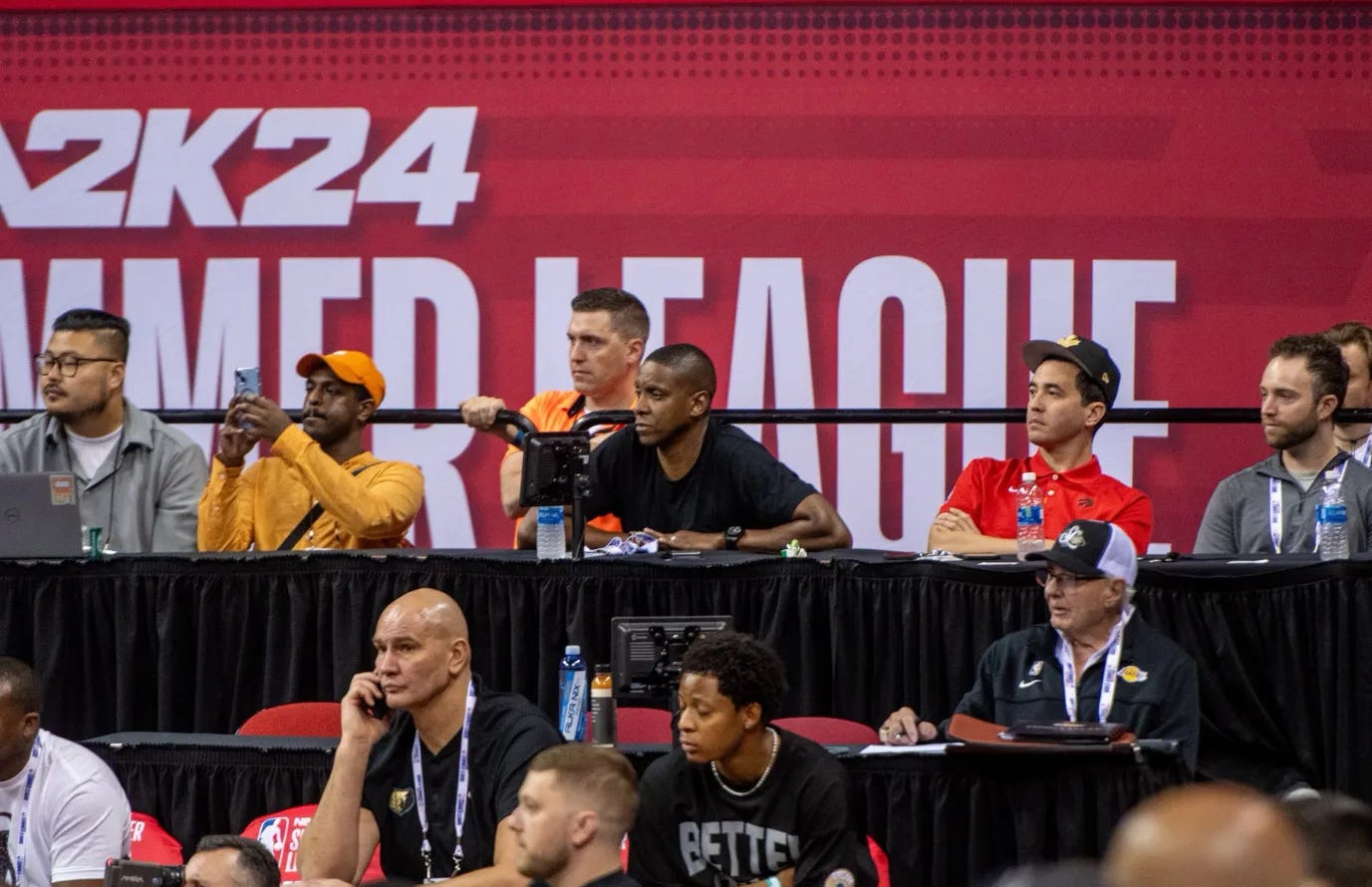The first psychological skill I taught every athlete I worked with in the NBA
Alex Auerbach, the Toronto Raptors' ex-Director of Wellness and Development, explains one principle that's proved especially powerful when working with pro athletes: psychological flexibility.
Psychological flexibility offers a framework for helping athletes navigate the complex demands of elite performance.
Psychological flexibility has strong scientific support across multiple domains. Research shows it is a key predictor of mental health, well-being, and performance outcomes. Studies demonstrate that higher psychological flexibility is associated with lower anxiety and depression, better stress management, improved relationships, and enhanced work performance.1
The empirical evidence comes from both clinical psychology, where psychological flexibility is a core mechanism of Acceptance and Commitment Therapy (ACT), as well as performance psychology research showing that athletes and executives who can flexibly adapt their thoughts, emotions and behaviors perform better under pressure.
Meta-analyses confirm that interventions targeting psychological flexibility lead to meaningful improvements in both mental health and performance metrics. This scientific foundation is why psychological flexibility has become increasingly central to evidence-based approaches for optimizing human potential.
The Reality of Elite Performance
Elite athletes face a unique paradox.
They need to maintain unwavering confidence while adapting to new challenges (novelty challenges our self-efficacy). They need to trust their training while being willing to adjust mid-game. They must balance aggression with composure, and individual excellence with team cohesion.
This is where psychological flexibility becomes critical. It's not about being mentally tough in a rigid way, but about having the capacity to shift between different psychological states as the situation demands.
These competing demands create immense psychological pressure that can derail even the most talented athletes. Without psychological flexibility, players often get stuck in rigid response patterns that undermine their performance. The following case study illustrates how developing psychological flexibility can help athletes navigate these challenges more effectively.
A Case Study in Flexibility
I worked with an NBA player (we'll call him Marcus) who was struggling with consistency. His talent was undeniable - he could take over games when everything aligned.
But when faced with adversity - a tough defensive matchup, early foul trouble, or poor shooting - he would often spiral into ineffective play. He’d persist with what wasn’t working in an effort to overcome his blocks. It was the quintessential example of “forcing it.”
The traditional approach might have been to build his mental toughness or teach him to "push through." You’d hear the same tropes from coaches, too: “just keep going,” “play your game,” “stick with the fundamentals.” Though well-intentioned, this messaging suggests just continuing on the same path will solve the problem.
We chose to instead work on 3 skills to give him a more dynamic approach to the game.
Keep reading with a 7-day free trial
Subscribe to The Mind Room to keep reading this post and get 7 days of free access to the full post archives.




